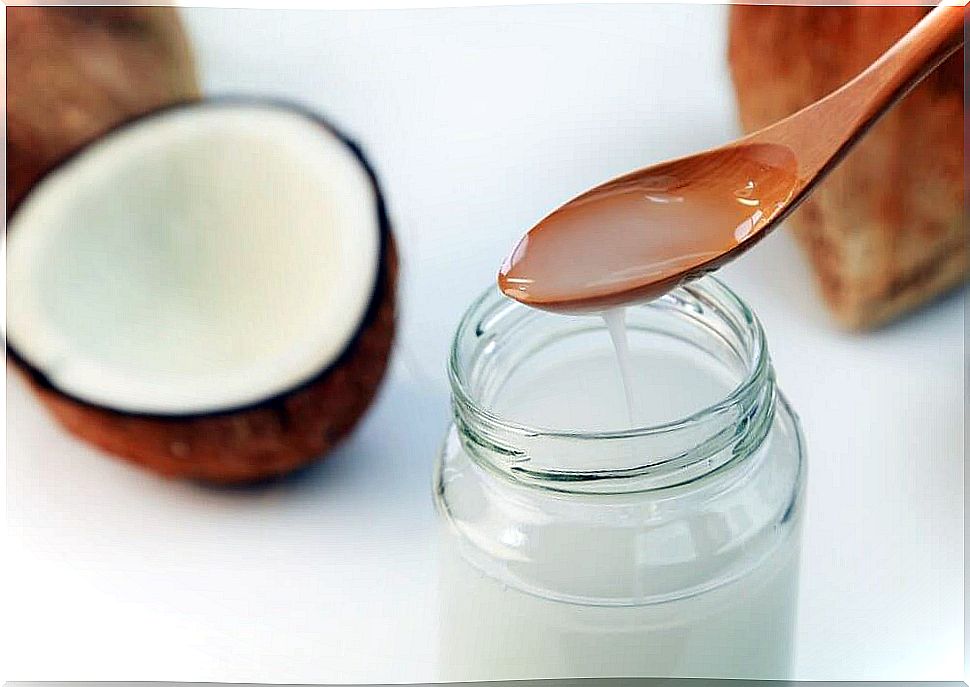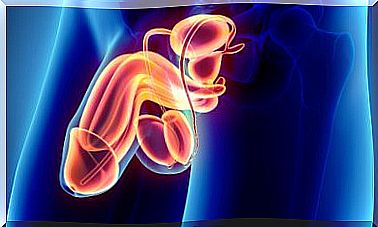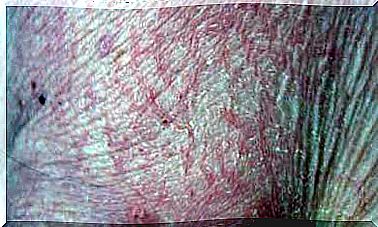5 Keys To Regulate The Hormones That Make Us Gain Weight
Hormones are characterized by being cyclical. However, factors such as menopause or diseases associated with the thyroid gland usually alter them, which favors weight gain. These 5 key practices will help you tackle this problem.
1. Thyroid hormones: thyroxine and triiodothyronine
When we suffer from hypothyroidism, hormones as important as thyroxine and triiodothyronine stop being secreted regularly and a deficit occurs.
In principle, this thyroid alteration causes the following:
- We start to burn fewer calories and, as a result, we gain weight.
- The skin stays a bit drier and the hair looks more fragile and brittle.
- On top of that, we get more tired.
This hormonal decompensation due to an underactive thyroid requires specific medical treatment. For our part, we can also attend the following tips.
Keys to combat hypothyroidism

You can introduce these ingredients into your diet:
- Extra virgin coconut, linseed and almond oil.
- Walnuts.
- Seaweed (nori, kombu, spirulina, etc.).
- Passionflower infusion.
2. How to regulate insulin
There are people who are always in good shape, who eat everything and do not get fat. For others, on the other hand, it is enough to eat a cake to go up a trouser size.
This, which for many can be desperate, sometimes contains a very specific problem: insulin resistance. Now, don’t think about diabetes right away.
Sometimes, factors such as stress, a continuous incorrect diet, being overweight or insomnia can cause an imbalance with insulin.
Keys to regulating insulin
- First, increase your fiber intake.
- Include turmeric in your diet.
- Consume ginger infusions.
- Put the sugar aside and make use of the cinnamon.
- Strawberries and blueberries reduce the insulin spike after meals.
3. Eat healthy proteins to regulate your hormones
Ghrelin is a hormone secreted by the digestive system and whose main function is to regulate our appetite.
Now, an important fact is that, if we maintain a diet rich in saturated fat and sugar, this hormone is altered and it takes us longer to feel full.
To regulate it, we must consume satisfying, healthy and nutritious food. Proteins are best suited to regulate ghrelin.
The best proteins you can consume
- Eggs.
- Almonds
- Salmon.
- Turkey breast.
- Lentils.
- Sunflower seeds.
4. The stress hormone makes you fat

The stress hormone is cortisol. While it is true that the higher the level of cortisol in the blood, the greater the risk of gaining weight, there are people who suffer the opposite effect: they lose weight.
Regardless of the process by which our body shows the effects of stress, none is healthy. Because, in addition to our weight, our cardiovascular health is also affected.
On the other hand, many patients suffering from stress and anxiety tend to feel a greater desire to consume carbohydrates.
Cortisol also makes our body less sensitive to leptin. This is another hormone in charge of giving us that feeling of satiety.
How to regulate cortisol in the blood
- Go for a half hour walk every day.
- Sleep between 7 and 8 hours a day.
- Eat breakfast oatmeal in the morning.
- Consume banana, it is relaxing.
5. Female hormones
One of the most common symptoms of PMS is feeling bloated, with more cravings for sweets, and a somewhat more irritable mood.
These are times when the hormone of well-being, serotonin, is altered. However, with the arrival of menopause this symptomatology worsens and sweats, hot flashes, insomnia and weight gain appear.
Next, let’s see how we can mitigate, as far as possible, these effects.
Keys to regulating estrogens

- Eat artichokes and the resulting cooking water along with a little lemon juice.
- Celery will do you very well for its diuretic effect.
- Eat pears and watermelon: they are excellent for preventing fluid retention.
- Prepare cold legume salads, the ones you like the most. Chickpeas or lentils are very suitable proposals for being rich in phytoestrogens.
When it comes to hormones, not everything is beyond our control. Any hormonal imbalance can be regulated through adequate medical treatment and also taking care of our lifestyle.









